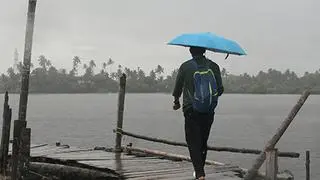India signed a strategically significant deal to develop the Chabahar port in Iran, giving it better access to Central Asia and the region, but a much-expected agreement on how to bring in gas from the Islamic republic remained elusive.
The bilateral talks between Prime Minister Narendra Modi and Iranian President Hassan Rouhani were expected to resolve differences on the modalities of flowing gas from Iran to India. Sources said there were in-depth discussions on the issue, but certain factors still needed to be worked out.
India has been asking for access to the east-west pipeline in the region, which would allow New Delhi to flow gas from its fields in Iran to Chabahar Port and then bring it to the country through an offshore pipeline. As an alternative, New Delhi has also suggested the setting up of a LNG plant in Iran.
Iran, on the other hand, is not keen on the terminal project and instead wants India make use of the pipeline that already exists in the Chabahar Port. Iran has also asked India to participate in the construction of the proposed Iran-Pakistan-India (IPI) gas pipeline, sources added.
The IPI project entails the construction of a 3,000-km-long overland pipeline starting from Assaluyeh, Iran and ending in Barmer, Rajasthan for about $10 billion. According to sources, India is “not very forthcoming in this project because of strategic reasons” although it is engaged with Pakistan on the Turkmenistan-Afghanistan-Pakistan-India pipeline project.
Chabahar Port On Monday, both countries finally signed the long-pending contract on the Chabahar Port under which India will be constructing and operating for 10 years two terminals and five berths with multi-purpose and general capacity cargo-handling. India has earmarked an investment of around $500 million for the Phase-I of the project.
“The bilateral agreement to develop the Chabahar port and related infrastructure… is an important milestone,” Modi said after his bilateral meeting with the Iranian President.
The Chabahar Port has strategic importance for India as it allows the country to bypass Pakistan and directly access Afghanistan and Central Asian markets.
“With our joint investments, we can connect India to Afghanistan, Central Asia and Europe,” said President Rouhani.
Modi also held a trilateral meeting with President Rouhani and Afghanistan President Ashraf Ghani. During the meeting, a trilateral agreement on transit and connectivity was signed.
In a joint statement, Iran and India expressed hope that a Heads of Agreement will be concluded by the third quarter of 2016, leading to further developments including commercial contract for Farzad B gas field.







Comments
Comments have to be in English, and in full sentences. They cannot be abusive or personal. Please abide by our community guidelines for posting your comments.
We have migrated to a new commenting platform. If you are already a registered user of TheHindu Businessline and logged in, you may continue to engage with our articles. If you do not have an account please register and login to post comments. Users can access their older comments by logging into their accounts on Vuukle.